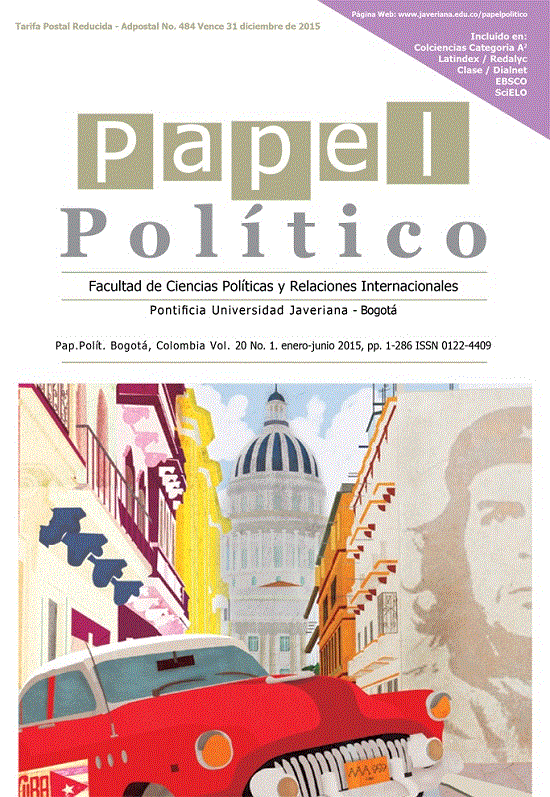Abstract
American Sociologist Joseph Kahl (1988) used tosay that in Latin America, scholars and researchersof sociology were seduced by the revolutionaryspirit of the students and started using widetheories which allowed them to understand thereasons for Latin America’s backwards progressinstead of studying accessible cases in detailto reach a wider reality. From this (now old)tradition, two trends (Bryant, 2003) have takenplace which seem to have a wide acceptanceat a regional level: the trend of defending freetrade as if it were some sort of unquestionable truth and the trend of attacking it as if it weresome sort of illness we have to live with. Thishas become notorious at the academic level.Even certain authors of both academic trends(Mendoza, 2012; Trentmann, 1998) have takenadvantage of the inherent conceptual scarcityof these speeches in political economy in orderto reinforce their ideological arguments. Consequently,the speech that aims to attack freemarket by any means possible, has led scholarsand politicians to group within some sort oftheoretical bag concepts such as state reduction,the neoliberal philosophy and institutions suchas the IMF and the World Bank, under the assumptionthat they are all in complete agreementand work harmoniously. This kind of thinkingis supported by the concept of internal colonizationby Mexican sociologist Pablo GonzalezCasanova (Kahl, 1988). This enormous andunintelligible conceptual potpourri is commonlyknown by the name of Washington Consensus.However, a careful analysis of the each elementwhich supposedly comprises the WashingtonConsensus will easily show that there are someof these elements which have a very weak conceptualrelation amongst them and some othersare plain contradictory. This article intended togive some clarity on this issue through the historicaland theoretical review of three conceptswhich have been widely controversial withinLatin America. With such purpose, this workwill first state some conceptual thoughts. Thenthe history of the IMF will be shortly narrated,then I will proceed to talk about the concept ofstate reduction and the neoliberal philosophyin overall –through the thoughts of its greatestadvocate, Milton Friedman– and its original ideaabout non intervention. Then the history of the Washington Consensus will be mentioned andall three elements will be compared through acomparative chart. Finally, some conclusionswill be stated.This journal is registered under a Creative Commons Attribution 4.0 International Public License. Thus, this work may be reproduced, distributed, and publicly shared in digital format, as long as the names of the authors and Pontificia Universidad Javeriana are acknowledged. Others are allowed to quote, adapt, transform, auto-archive, republish, and create based on this material, for any purpose (even commercial ones), provided the authorship is duly acknowledged, a link to the original work is provided, and it is specified if changes have been made. Pontificia Universidad Javeriana does not hold the rights of published works and the authors are solely responsible for the contents of their works; they keep the moral, intellectual, privacy, and publicity rights.
Approving the intervention of the work (review, copy-editing, translation, layout) and the following outreach, are granted through an use license and not through an assignment of rights. This means the journal and Pontificia Universidad Javeriana cannot be held responsible for any ethical malpractice by the authors. As a consequence of the protection granted by the use license, the journal is not required to publish recantations or modify information already published, unless the errata stems from the editorial management process. Publishing contents in this journal does not generate royalties for contributors.


